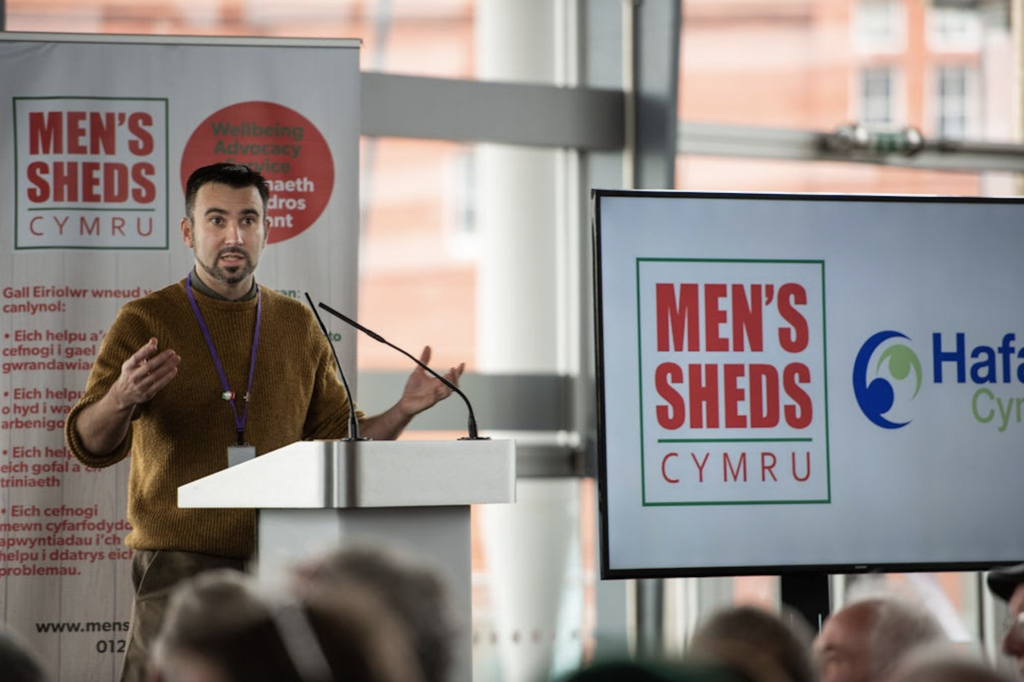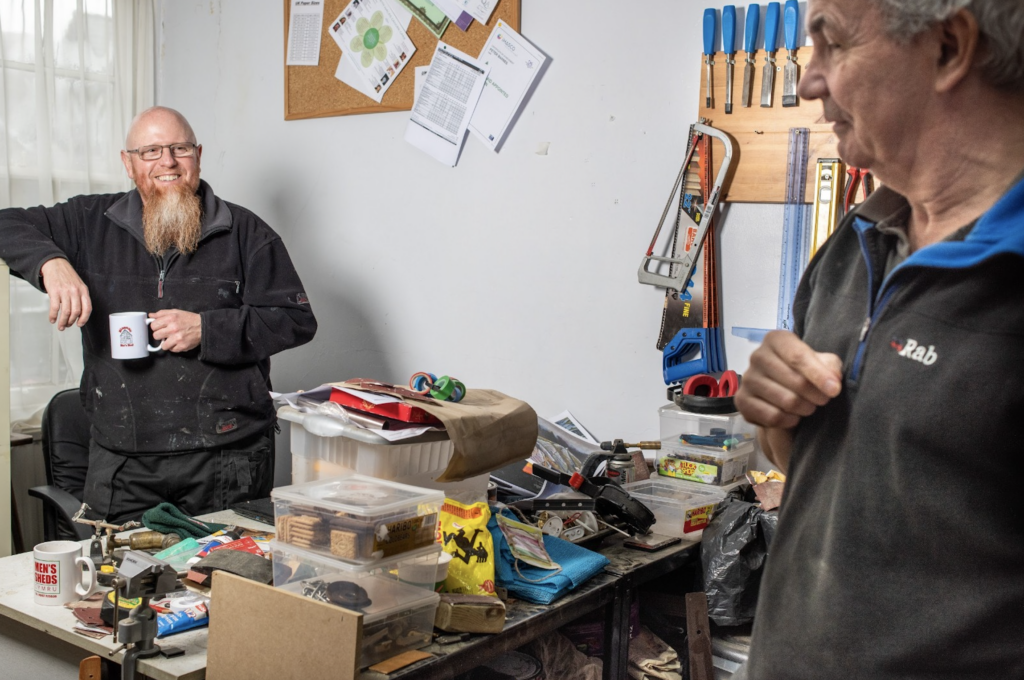‘For men, conversation happens shoulder to shoulder. It’s health by stealth’
How do you help men feel less lonely and isolated? Simple: create a shed. Robert Visintainer from the charity Men’s Sheds explains how tea, biscuits and a workbench can turn lives around.

What is Men’s Sheds?
Imagine a man suddenly finds himself retired, no longer in work, perhaps bored, lonely, isolated, keeping himself to himself in his house.
We know that loneliness and isolation aren’t good for wellbeing. Forming friendships in a Men’s Shed is like a replacement for the friendships you made with your colleagues in work.
Guys retired from the armed forces often say that the Shed replaces their comrades. It’s their platoon.
How do men open up about their feelings?
It’s said that women are much better at handling feelings, emotions and talking face to face. But for men, conversation doesn’t work that way. It happens shoulder to shoulder.
So while someone’s engaged in an activity, like fixing a broken chain, they’re on a workbench.
They’re stood next to someone else. They start to form a friendship. They’re not looking each other in the eye. But John will say ‘I noticed you’ve been down a bit lately, Bill…’
And because they’re in a safe place, Bill’s more likely to say, ‘Yeah, you know, I’ve been feeling this.’ And then John will say, ‘Oh, well, I went through something similar.’ It’s health by stealth.
So I think communities, and the people in them, have their own answers. But what’s missing is the support to fulfil those ideas.
Setting up a Men’s Shed is simple, really. You need a couple of guys, biscuits, tea and coffee to start it off.
But it then needs someone to say ‘Let’s do this. Let’s give this a go.’ It needs a bit of a leader. And it needs people who are doing it to be in control and make the decisions.
So it’s not being done to them. They’re in control. They decide what’s going on. They decide what activities happen and when they meet.
Setting up a Men’s Shed is simple, really. You need a couple of guys, biscuits, tea and coffee to start it off.
How did Men’s Sheds start?
It’s slightly disputed but we will give it to the Australians! It started in the late 1990s/early 2000s among army veteran groups. There are now more Men’s Sheds in Australia than McDonald’s restaurants.
What we often say is: If a man has time on his hands (and he doesn’t like the fact that he has that time on his hands), he can go to the Shed.
You can make new friends there, build relationships, learn skills, share skills – all sorts. Because the Shed is the group, not the building.

And how did you get involved?
I met a group of six guys in Bridgend in 2009. They all had mental health issues but they formed this bond around a wood workshop. They were doing a Men’s Sheds concept without realising there was a thing called Men’s Sheds.
When we were set up with funding from the National Lottery, the first remit was to establish thirty Men’s Sheds in Wales in three years.
That was surpassed in the first three years and there are about seventy Men’s Sheds now. We’ve got allotments, we’ve got workshops. Some have been given premises to use by local authorities.
Some are in garages at the back of church allotment spaces. One pays to be at a business park. Each Men’s Shed is its own entity.
It must have been tough for people during Covid.
When the Sheds closed down we thought: What can we do to keep people in contact with each other?
Because The Shed is their outlet – that’s where they meet people. That’s where they talk. It’s their reason for getting up in the morning and getting out of the house. This was taken away from them because Sheds couldn’t open.
We didn’t have a newsletter so we started one. We made sure it was available both online and for those that wanted it posted. Because a lot of our members aren’t able to connect to the internet.
And we got interesting speakers to come and do an hour on Zoom. There was a clog maker, someone that held the land speed record for a penny farthing, a wallpaper maker. We did some historical talks. The guys who came along found it fascinating. The talks are still on YouTube as a bit of a legacy.
Can you give a snapshot of what the Sheds mean to people?
During the first lockdown, Sheds members were constantly in contact with each other on WhatsApp.
And one of the guys, who’d had a bad leg for a long time, ended up in hospital having it amputated.
One of the messages he put through said “I’ve been on this hospital bed for the last six hours. If it wasn’t for this WhatsApp group, I’d have no one to talk to.”
Because a lot of banter goes on at Sheds. And that banter is easily transferred to WhatsApp.
When the Sheds closed down we thought: What can we do to keep people in contact with each other?
Another example is from the other week. Someone lost his wife during lockdown. He thanked everyone for being there and making him feel so welcome.
Because his wife was everything to him. Imagine losing your partner, your best friend, someone you’ve spent the vast majority of your life with. And then unexpectedly finding yourself alone.
I hear so many stories like this. The Sheds don’t solve people’s problems but they do help people feel better. They give them strength and confidence. Which can be a catalyst to ask for more help somewhere else.
Find out more about Men’s Sheds Cymru.